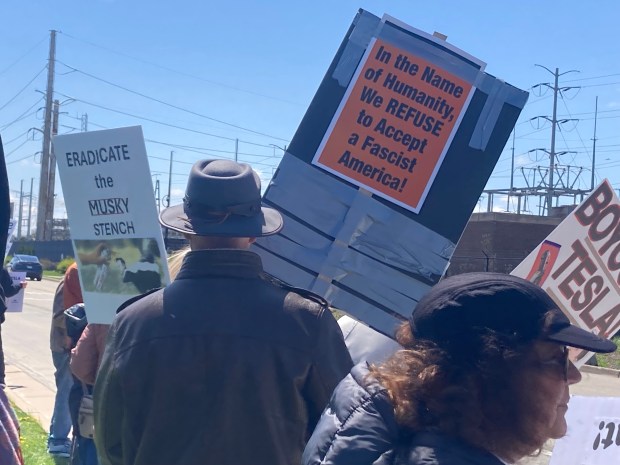The Gary Sanitary District has worked with a new consultant that had to pay thousands of dollars to the Securities and Exchange Commission for a separate project in Harvey, Illinois.
Brandon Comer, managing partner of Comer Capital Group, was first seen at a Jan. 24 meeting, where he recommended approval of a bond issuance. Comer was also involved at GSD’s February meetings, according to the board’s minutes online.
“Comer Capital Group, led by Gary native Brandon Comer, provides valuable advisory services and continues to demonstrate integrity. The prior Securities and Exchange Commission inquiry was successfully resolved through a settlement with no findings of wrongdoing,” Michael Morgan, communications manager for the Gary Sanitary District, said in a statement provided to the Post-Tribune.
“The firm remains a licensed municipal advisor. Ragen Hatcher, named Executive Director in January 2025, expresses confidence in their services and intends to continue the partnership.”
Comer is also involved with the city of Gary’s Lake County Convention Center bid, where he’s listed as a financial advisor on behalf of Comer Capital Group.
In August 2024, a resolution to hire Comer Capital Group for financial advisory services was presented to the Gary Redevelopment Commission. The commission, on Aug. 7, tabled the resolution after Executive Director Christopher Harris requested it.
The commission did not vote on the resolution again in 2024. If passed, the city of Gary would have paid Comer Capital Group $70,000 to work with the redevelopment commission.
On June 27, 2019, the SEC charged Comer and the advising firm with breaching its fiduciary duty in connection with a $6 million municipal bond offered by the Harvey Public Library in Harvey, Illinois, according to the SEC website.
The complaint was filed in the U.S. District Court for the Northern District of Illinois. The lawsuit was settled on Jan. 30, 2024.
Comer Capital and Comer consented to pay $25,000 plus prejudgment interest, according to the SEC website. The final judgment also ordered the firm to pay $30,000 and Comer to pay $20,000 in civil penalties.
The group and Comer did not admit or deny the allegations in the SEC’s complaint.
The SEC’s complaint alleges that Comer Capital Group and Comer failed to protect the interests of their client, the Harvey Public Library District. The group was hired to assist with the bond offering process, including selection of an underwriter and pricing of bonds.
The lawsuit alleged that the firm and Comer didn’t provide advice on the qualifications of an underwriter. The underwriter hired by the library district had difficulties finding investors to buy bonds, and the SEC alleged that Comer Capital did not consider or recommend that the district work with a different or additional underwriter for the bonds.
Comer Capital and Comer also did not provide the district with necessary information and advice to ensure the price of bonds was fair and reasonable, the lawsuit alleged.
“According to the SEC’s complaint, the price was not fair and reasonable and the mispricing of the bonds will cause the Library District to pay more than $500,000 in additional interest over the life of the bonds,” said the SEC’s website.
In July 2017, Comer Capital Group was one of seven candidates for a Gary School Corp. emergency manager position. The position was created when the school corporation was taken under state control and would control the district’s finances and academics, according to Post-Tribune archives.
In August 2017, the Indiana Distressed Unit Appeal Board selected MGT Consulting to manage the Gary School Corp.
In July 2019, former Gary Councilwoman LaVetta Sparks-Wade expressed concerns with the investigation, according to Post-Tribune archives.
Comer Capital was involved with a $40 million bond sale on Gary’s public safety facility in 2019. The deal was created to erase a budget deficit before former Mayor Jerome Price took office the following January.
Former Mayor Karen Freeman-Wilson previously told the Post-Tribune that the debt service on the bond is about $3.3 million per year or $66 million for a full 20 years, according to archives.
Sparks-Wade said an SEC investigation was enough for the city to rethink the deal.
“I find it unsettling to think we’re using the same people who are the subject of an SEC investigation,” Sparks-Wade previously said. “I think this gives us the perfect opportunity … to rethink what we did.”
mwilkins@chicagotribune.com





